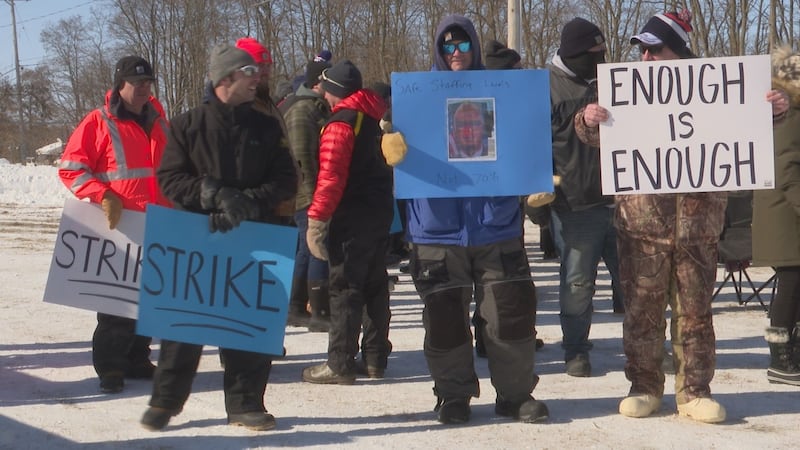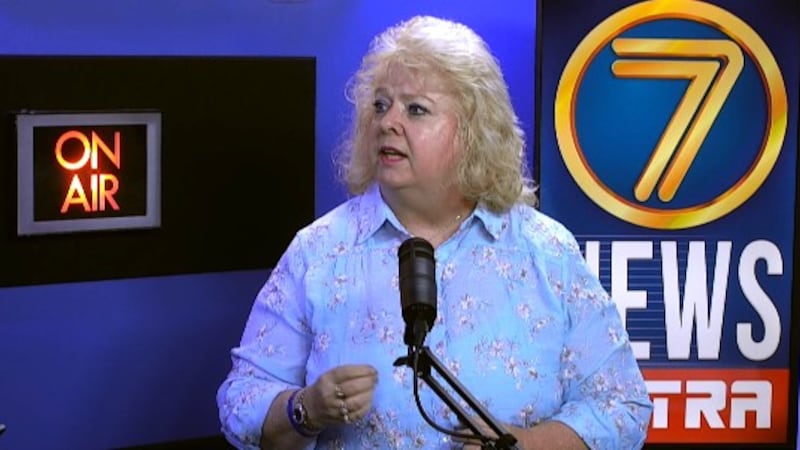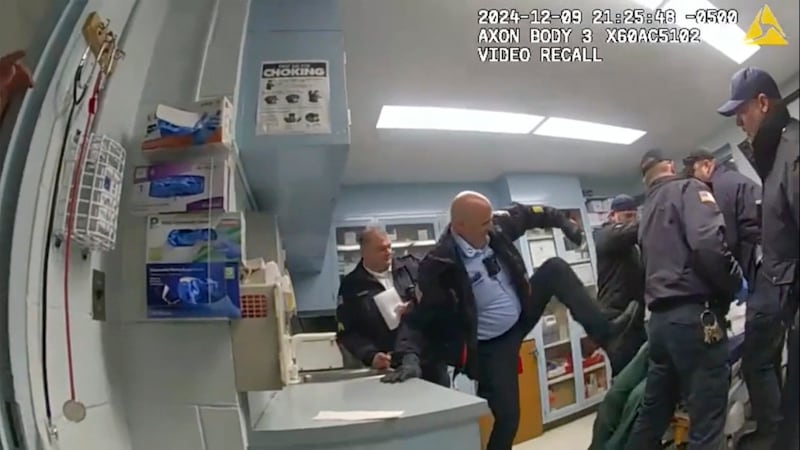Agreement reached to end prison strike
Corrections officers need to decide if they accept terms

ALBANY, New York (WWNY) - After four days of mediation, Governor Kathy Hochul says an agreement has been reached to end work stoppages at state prisons across New York.
An arbitrator, Martin Scheinman, was brought in to mediate between the state and the union representing corrections officers.
The tentative agreement - called a ‘consent award’ - addresses the temporary suspension of the HALT Act, looks to end mandatory 24-hour overtime shifts, and lays out what actions during the strike can and cannot be disciplined, among other things.
Corrections officers across the state left their jobs and took to the picket lines almost two weeks ago. They said New York’s prisons have gotten much more dangerous, because the HALT Act limits their ability to impose discipline on inmates and because the prisons are perennially short-staffed.
It’s not a cut and dry deal, however. Because the strikes are unsanctioned by the union and illegal under the Taylor Law, each striking employee will need to agree to the terms of the agreement and return to work by March 1 at designated times.
In a statement, Governor Hochul said, “My top priority is the safety of all New Yorkers, and for the past 11 days, I have deployed every possible State resource to protect the well-being of correction officers, the incarcerated population and local communities across New York.
“Working with a mediator, we have reached a consent award to address many of the concerns raised by correction officers, put DOCCS back on the path to safe operations, respect the rights of incarcerated individuals and prevent future unsanctioned work stoppages.
“I have the utmost respect and gratitude for the correction officers, civilian DOCCS employees, National Guard personnel and other staff who have done their absolute best to maintain order in our correctional facilities during this challenging period,” Hochul said.
Scheinman, the arbitrator, detailed the terms in a statement late Thursday night. They are as follows.
The temporary suspension of certain parts of the HALT Act will remain in place for 90 days. After the first 30 days, the Department of Corrections and Community Supervision commissioner will need to review each prison’s situation to determine if HALT should be fully reinstated.
Scheinman says once the suspension of HALT ends, a “Circuit Breaker” staffing metric must be implemented. Fridays, Saturdays, and Sundays typically have fewer staff available. If staffing vacancies on those days are higher than 30% of an established “plot plan” then these actions must be taken to avoid 24-hour mandatory overtime:
a. The prison will close posts in order to address the short staffing. If that doesn’t work, then;
b. The prison will suspend general population programming. If that doesn’t work, then;
c. The prison will suspend HALT Act provisions as needed
d. The Circuit breaker provision will not apply to other elements of the HALT Act.
e. The Commissioner of DOCCS retains the discretion to determine other high impact days.
Scheinman goes on to say, “the joint goal is to minimize and work towards eliminating anyone working 24-hour mandatory overtime.”
Corrections officers or sergeants who work enough voluntary overtime in a two week period will not be mandated to work an additional shift in the same pay period. A $750 penalty will be paid to an employee if that voluntary OT agreement is violated. Additional pay will be granted for voluntary weekend OT. Any mandated 24-hour overtime shift will be immediately reviewed for the reasons it was mandated.
Additionally, retired COs may be hired on a temporary, hourly basis, specifically for transportation purposes.
The award addresses legal mail, saying DOCCS must find a qualified vendor to screen mail in an effort to keep drugs from getting into prisons. It emphasizes that no communications within that mail will be reviewed.
As for disciplining striking officers. So long as they return to work by March 1 when they’re assigned tour is due, they are exempt. They are not exempt from punishment for vandalism, violence or illegal activity done during the strike. They would also be subject to any fines incurred under the Taylor Law.
DOCCS agrees to quickly process applications for reinstatement for employees who lost their job while on probation because of the strike. Though reinstatement is not guaranteed.
The National Guard will remain at prisons, slowly being drawn down at the governor’s discretion. The agreement notes that the National Guard will be used to help prevent employees from being forced to work 24-hour shifts.
An already rescinded memo on 70/30 staffing will remain rescinded.
Corrections workers who work OT over the next 30 days will continue to get the increased 2.5 overtime rate.
The state agrees to have the Department of Civil Service finish an analysis of requested salary grade increases for Corrections Officers and Sergeants within four months.
Referral bonuses of $1,500 will be given to staff who recruit non-DOCCS employees to become COs.
An anonymous mental health and wellness app must be implemented.
The parties will meet to define assault for the purpose of tracking assaults on staff.
Striking workers must return to the job by Saturday, March 1 on their assigned Tour.
Tour 2 must report by 6:45 a.m.
Tour 3 must report by 2:45 p.m.
Tour 1 must report by 10:45 p.m.
It remains to be seen how the striking workers will respond to the terms laid out by Scheinman.
Copyright 2025 WWNY. All rights reserved.











